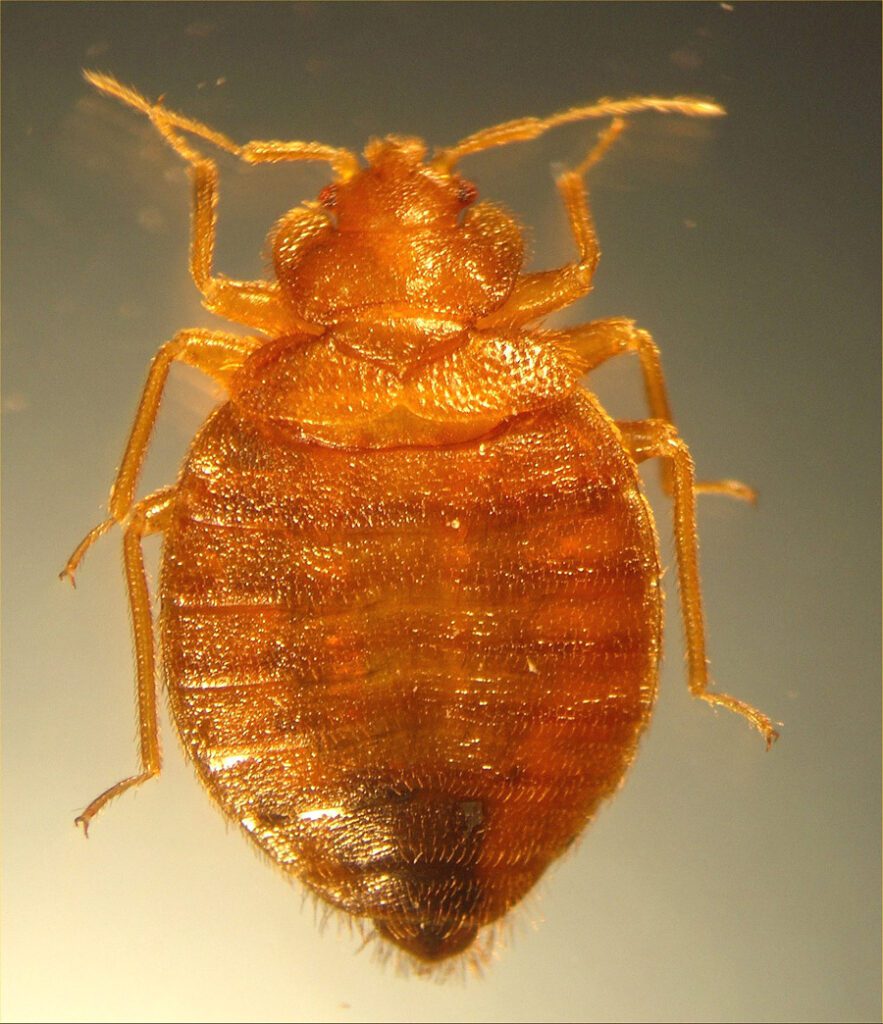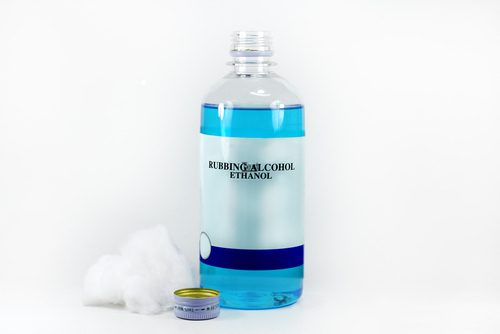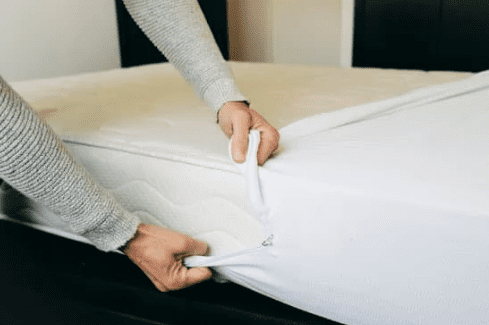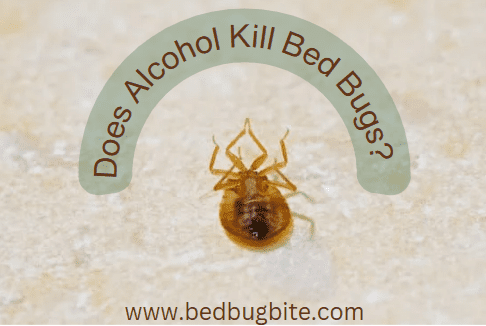Welcome to the ultimate guide on bed bug control! Does Alcohol Kill Bed Bugs? If you’re dealing with these pesky pests, you’ve come to the right place. Bed bugs, small reddish-brown insects that feed on human blood. They can quickly turn your home into an uncomfortable nightmare. But fear not, with the most accurate and detailed information available, you’ll soon be equipped to tackle this issue head-on.
In this blog post, we’ll explore effective methods to eradicate bed bugs and create a comfortable living space once again. From traditional to modern treatments, we’ll cover it all. You’ll learn about the potential of alcohol as a bed bug killer, the dangers, and risks of infestations, and how to prevent future occurrences. By the end of this post, you’ll have the knowledge and tools needed to take control of your living space and bid farewell to bed bugs for good.
So, let’s dive in and discover the best strategies for effective bed bug control. Get ready to say goodbye to these unwelcome intruders and hello to a peaceful and bug-free home!
Understanding Bed Bugs:
If you want to effectively tackle bed bug infestations, it’s essential to understand your enemy. Bed bugs are small, reddish-brown insects that feed exclusively on human blood. They are known to be relentless in their pursuit. Their tiny size allows them to hide in crevices and cracks during the day, making them difficult to spot. However, when night falls and you’re fast asleep, they emerge from their hiding spots to feed on your blood.

To identify these pesky bugs, look out for their characteristic flat and oval-shaped bodies. They lack wings but are excellent crawlers, using their six legs to move swiftly across various surfaces. Despite their small size, bed bugs can survive for months without a meal, making them incredibly resilient and hard to eliminate.
Bed bugs are skilled hitchhikers and can infest new places by latching onto clothing, luggage, or furniture. They can quickly spread from one location to another, leading to widespread infestations if left untreated. So, whether you’ve spotted a bed bug or suspect an infestation, understanding their habits and behavior is the first step towards effective control.
Dangers and Risks of Bed Bugs:
When it comes to bed bugs, the dangers they pose extend far beyond the irritation of itchy bites. These tiny bloodsuckers can wreak havoc on your health and well-being, making it crucial to address infestations promptly.
One of the primary concerns with bed bugs is their ability to cause skin reactions in individuals they bite. While some people may only experience mild redness and itching, others may develop severe allergic reactions. Scratching these bites can lead to secondary infections, further complicating the situation.
Additionally, the psychological impact of a bed bug infestation should not be underestimated. Dealing with the constant fear of being bitten at night can result in sleep disturbances, anxiety, and stress. The mental toll can be particularly challenging for individuals already dealing with anxiety or other mental health conditions.
Beyond personal health, bed bugs can also have significant economic consequences. If an infestation is not promptly addressed, these pests can multiply rapidly, leading to extensive damage to furniture, linens, and other belongings. Professional extermination costs can also add up, causing financial strain for affected households.
Furthermore, bed bugs are not only confined to homes. They can be found in various public spaces, including hotels, theaters, and public transportation. This mobility poses a risk of spreading infestations to new locations, creating a community-wide problem.
In conclusion, the dangers and risks of bed bugs go far beyond mere annoyance. Prompt action is necessary to safeguard your health, mental well-being, and financial stability. Understanding these risks empowers you to take proactive measures against bed bug infestations and protect your home and loved ones.
Bed Bug Treatments: Traditional vs. Modern:
When faced with a bed bug infestation, it’s essential to explore the various treatment options available. Traditional methods have been used for generations, but modern approaches offer innovative solutions to tackle these persistent pests more effectively.
Traditional treatments: often involve the use of chemical pesticides. While these can be initially effective, bed bugs have developed resistance to some of these chemicals over time. Additionally, traditional treatments may not address the eggs, leading to reinfestations down the line.
On the other hand, modern treatment approaches take a more comprehensive and proactive approach to bed bug control. One popular method is heat treatment, which involves raising the temperature in infested areas to a level that is lethal to bed bugs at all life stages. Heat treatment reaches into cracks and crevices, ensuring the complete eradication of these pests, including their eggs.
Another modern option gaining popularity is the use of natural and eco-friendly pesticides. These treatments are designed to be effective against bed bugs while minimizing potential harm to humans and pets. Environmentally conscious individuals often prefer this approach.
When deciding on a treatment, it’s essential to consider factors such as the severity of the infestation, potential health risks, and the environmental impact of the chosen method. In some cases, a combination of traditional and modern treatments may be the most effective approach.
Remember, bed bug infestations are persistent, and eradicating them entirely requires careful planning and execution. Seeking the assistance of professional exterminators may be a wise decision, as they have the expertise and experience to implement the most appropriate treatment strategy for your specific situation.
Does Alcohol Kill Bed Bugs?
One popular DIY method that often comes up in discussions about bed bug control is the use of alcohol to tackle these pests. Alcohol, specifically isopropyl alcohol or rubbing alcohol, is believed to be effective in killing bed bugs on contact due to its desiccating properties. When sprayed directly on bed bugs, it can rapidly dehydrate and kill them.

However, it’s essential to approach this method with caution. While alcohol can kill bed bugs on contact, it may not be as effective in eliminating an entire infestation. Bed bugs are excellent at hiding in cracks and crevices, and they reproduce quickly, so simply spraying alcohol on visible bugs may not address the underlying problem.
Moreover, alcohol is flammable, which poses a safety risk when used as a bed bug treatment. Applying alcohol near open flames or heat sources can lead to accidents and injuries. Proper ventilation is also crucial when using alcohol to avoid inhaling fumes.
If you decide to use alcohol as a bed bug killer, do so as part of a more comprehensive treatment plan. Combine it with other methods such as heat treatment, natural pesticides, or professional extermination for better results. Regular inspection and monitoring are also necessary to ensure the infestation is fully eradicated.
Ultimately, while alcohol can be a useful tool for spot treatments and killing individual bed bugs, relying solely on this method may not provide a long-term solution to the bed bug problem. Consider consulting with a pest control professional to develop a more effective and safe strategy for dealing with these persistent pests.
Research Studies and Experiments:
When it comes to finding the most effective bed bug control methods, scientific research and experiments play a crucial role. Researchers have conducted numerous studies to evaluate the effectiveness of various treatments, including alcohol as a bed bug killer.
Several studies have investigated the impact of alcohol on bed bug infestations. While these studies generally confirm alcohol’s ability to kill bed bugs on contact, they also highlight its limitations as a standalone treatment. One study found that alcohol was effective in eliminating adult bed bugs, but its efficacy decreased significantly when dealing with bed bug eggs and nymphs. This suggests that alcohol may not be sufficient to eradicate an entire infestation due to the presence of unhatched eggs and immature bed bugs.
Furthermore, research has shown that bed bugs can develop resistance to alcohol and other pesticides over time. This resistance can make alcohol less effective in the long run and necessitates the use of alternative or complementary treatments for better results.
It’s essential to interpret research findings critically and consider the specific conditions under which experiments were conducted. Factors such as the concentration of alcohol, application method, and environmental conditions can all influence the results.
While alcohol may have its limitations, the research provides valuable insights into the best approaches for bed bug control. Combining alcohol with other proven treatments can enhance its effectiveness and contribute to a more comprehensive strategy for eradicating bed bugs.
Alternative and Complementary Bed Bug Treatments:
In addition to alcohol and traditional chemical treatments, there are several alternative and complementary methods that can aid in your battle against bed bugs.
1. Heat Treatment: This method involves raising the temperature in infested areas to a level that is lethal to bed bugs at all life stages. Heat treatment is effective in reaching hidden bed bugs in cracks and crevices, ensuring comprehensive eradication. It is considered an eco-friendly option and does not involve the use of chemicals.

2. Encasements and Traps: Mattress encasements and bed bug traps are preventive measures that can be used in conjunction with other treatments. Mattress encasements create a barrier around the mattress, preventing bed bugs from entering or escaping, thus reducing their hiding spots. Traps can help monitor bed bug activity and alert you to potential infestations.
3. Professional Exterminators:
When dealing with a severe or persistent bed bug infestation, seeking the expertise of professional exterminators is highly recommended. They have access to a range of effective treatments and can develop a customized plan based on the severity of the infestation and your specific needs.
It’s important to note that while these alternative and complementary treatments can be valuable additions to your bed bug control strategy, they may not be sufficient on their own. Combining various methods, such as heat treatment with mattress encasements and ongoing monitoring, can lead to more successful outcomes in eliminating bed bugs and preventing infestations.
Preventing Future Bed Bug Infestations:
Taking proactive measures is essential to prevent future bed bug infestations and maintain a bed bug-free environment. Here are some steps you can take to safeguard your home:
1. Regular Inspection: Conduct routine inspections of your living spaces, including bedrooms, sofas, and other furniture. Check for signs of bed bugs such as shed skins, fecal stains, or actual bugs. Early detection can prevent a minor infestation from turning into a major problem.
2. Encasements and Clutter Reduction: Consider using mattress encasements on all beds to create a protective barrier against bed bugs. Reduce clutter around your home, as it provides fewer hiding spots for these pests.
3. Vigilance While Traveling: Bed bugs are skilled hitchhikers and can be inadvertently brought into your home through luggage and clothing while traveling. When staying in hotels or accommodation, inspect the room for signs of bed bugs before settling in.
4. Launder and Vacuum Regularly: Wash bedding, linens, and clothing regularly in hot water, and dry them on high heat to kill any potential bed bugs. Vacuum carpets, upholstery, and crevices frequently to remove any eggs or bugs.
5. Seal Cracks and Crevices: Seal any cracks and crevices in walls, baseboards, and furniture to reduce potential hiding spots for bed bugs.
6. Education and Awareness: Educate yourself and your family about bed bugs and their habits. Be aware of the signs of infestation and know how to respond promptly.
By following these preventive measures, you can significantly reduce the risk of future bed bug infestations and create a safer, more comfortable living environment for you and your loved ones.
In conclusion,
While alcohol can kill bed bugs on contact, its effectiveness as a standalone treatment may be limited. Bed bug infestations are challenging to eradicate, and using a combination of methods is often necessary for successful control. Traditional methods, modern approaches, and preventive measures play a crucial role in dealing with these persistent pests. Understanding bed bug behavior and exploring various treatments can help individuals and communities tackle infestations effectively, leading to healthier and more comfortable living environments.


